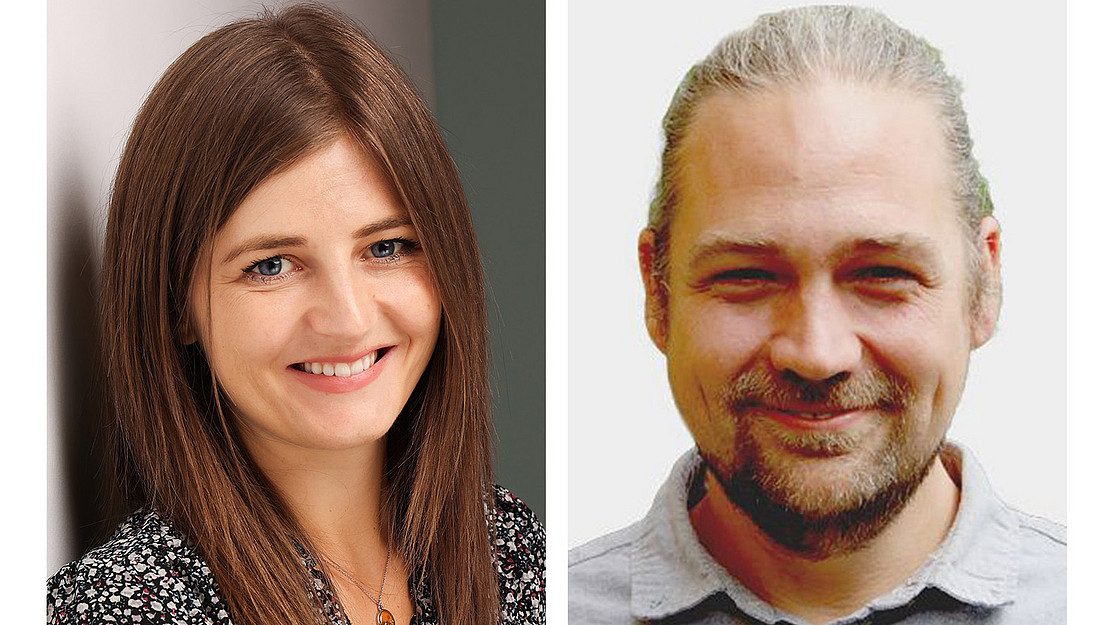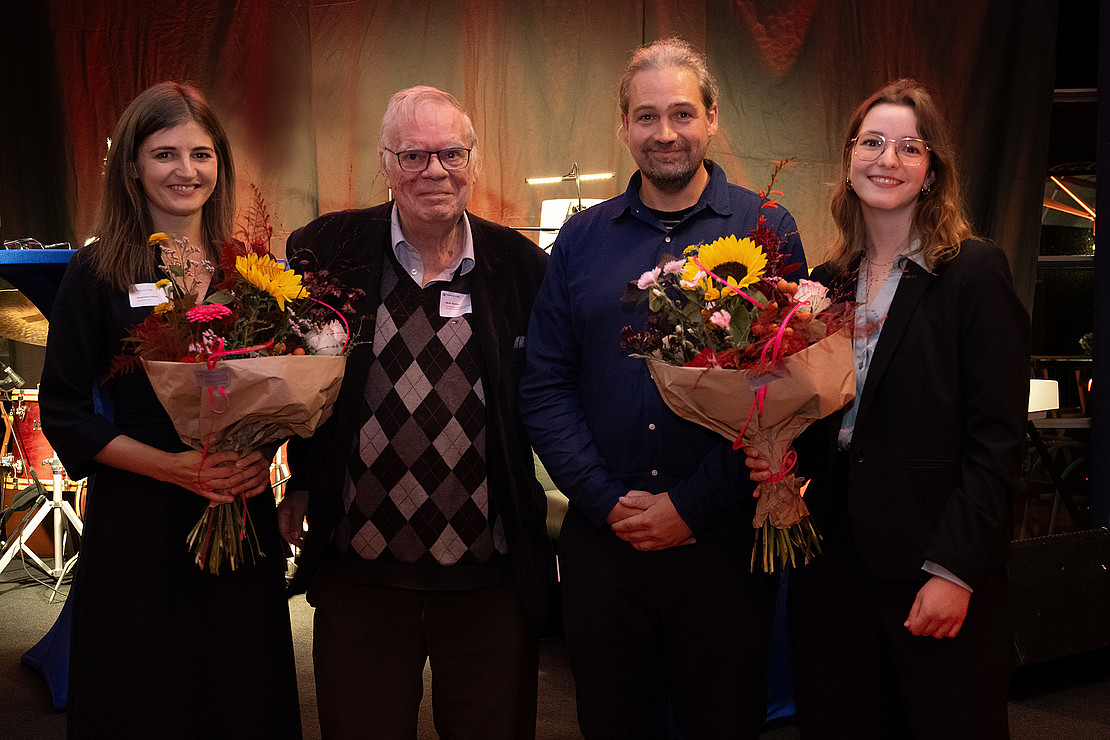Congratulations! Magdalena Fellner and Nicolai Götze awarded the Ulrich Teichler Prize for outstanding dissertations in higher education research


Magdalena Fellner receives the award for her dissertation on "Studierfähigkeit als soziales Konstrukt. Einschränkung und Erweiterung kollektiver Möglichkeitsräume durch zugrunde liegende Verständnisse" (University of Linz) and Nicolai Götze is awarded for his dissertation "Institutionelle Filter: Das deutsche Hochschulwesen zwischen Persistenz und Reform" (University of Kassel). The prize for an outstanding thesis goes to Lisa-Marie Steinkampf (University of Hanover) for her Master's thesis "A typology of professorial careers in Germany".
A jury of the GfHf decides on the awarding of the prize. The decisive factor is that a well-founded contribution is made to development of higher education research. The Ulrich Teichler Prize for dissertations includes a maximum printing cost subsidy of 2000 € and additional prize money of 1000 €. The prize money for the award-winning theses is 1000 €. The Ulrich Teichler Prize has been awarded annually since 2008. The long-standing INCHER Director Prof. Dr. Dr. h.c. Ulrich Teichler donated the prize to encourage young academics to tackle questions of university research..
Magdalena Fellner's award-winning dissertation „Studierfähigkeit als soziales Konstrukt. Einschränkung und Erweiterung kollektiver Möglichkeitsräume durch zugrundeliegende Verständnisse“ deals with the concept of the ability to study. The author systematises the diverse and divergent understandings of the ability to study and poses the question of how the understandings of the ability to study affect collective spaces of possibility for the development of the ability to study. She pursues this question by deconstructing the understanding of the ability to study on the basis of collective social ideas. In doing so, she uses historical-comparative analyses of the ability to study from the beginnings of universities to the present day to contextualise the phenomenon. In the empirical part, interviews are used to reconstruct the processes involved in creating the ability to study. In this way, important structural elements that ultimately contribute to the maintenance of social inequalities are worked out.
Magdalena Fellner completed her dissertation with "summa cum laude" at the Johannes Kepler University Linz (Austria) in 2023. The publication of the dissertation as an open access publication by Campus Verlag (Frankfurt a.M.) is planned for autumn 2024.
Since March 2024, Magdalena Fellner has been a Senior Researcher in the research area "Students and Graduates" at the International Centre for Higher Education Research (INCHER) at the University of Kassel. Magdalena is a multiple award winner, having already been honoured with a Post-Doc-Track-Fellowship by the Austrian Academy of Sciences in June 2024.
Nicolai Götze receives the Ulrich Teichler Prize for his dissertation „Institutionelle Filter: Das deutsche Hochschulwesen zwischen Persistenz und Reform“. This cumulative dissertation focuses its analyses on permanent reforms with simultaneous persistence in the (German) higher education system. The central theoretical innovation of this work is the concept of institutional filtering of reforms in stratified fields. Through a combination of institutionalist and field-theoretical considerations, the work contributes to the analytical understanding of reform dynamics at two points: First, reforms always take place in interaction with pre-existing social structures, which are characterised by specific cultures and path dependencies. In this interaction between reform strategies and structures, reform ideas and their implementation in practice are filtered, i.e. selected and reshaped. Secondly, reforms in the higher education sector are complex multi-level phenomena because reform strategies take shape in the interaction between different levels of actors (global level, national level and organisational level). Furthermore, the field structure of higher education is also multi-layered.
Reforms are not only filtered through national political cultures, the specificity of the national higher education field and different disciplinary cultures, but also along functional and status-related sub-differentiations of the organisational field of higher education. In the dissertation, this is worked out on the basis of two global-circulating reform bundles aimed at the performance production of academics: Reforms of the valorisation of performance, which are linked to New Public Management, and reforms of Academics' Societal Engagement, which are in the context of the global spread of innovation policies. With this analysis, the work provides a conceptually differentiated overall picture of the filtering of reforms in the (German) higher education sector.
Nicolai Götze's dissertation at the University of Kassel was graded "summa cum laude". It can be found online at the following link: https://kobra.uni-kassel.de/handle/123456789/16046#. The work was supervised by Prof. Dr. Krücken (INCHER) and reviewed by Prof. Dr. Bernd Kleimann (INCHER & DZHW) and Prof. Dr. Uwe Schimank (University of Bremen).
Nicolai Götze has been working as a researcher at INCHER at the University of Kassel on various research projects since June 2016. Thematically, his focus is on the interface between higher education and science research, organisational sociology, the sociology of competition and the sociology of evaluation.
The Ulrich Teichler Prize and the GfHf Prize, which are awarded annually, are open to doctoral students and graduates from universities in German-speaking countries (A, CH, D, LI, LU). Authors do not need to be members of the Society for Higher Education Research. A jury appointed by the board of the Society for Higher Education Research, which is made up of university researchers from various disciplines, decides on the submitted works.
Find further information at: http://www.gfhf.net/nachwuchspreise/
